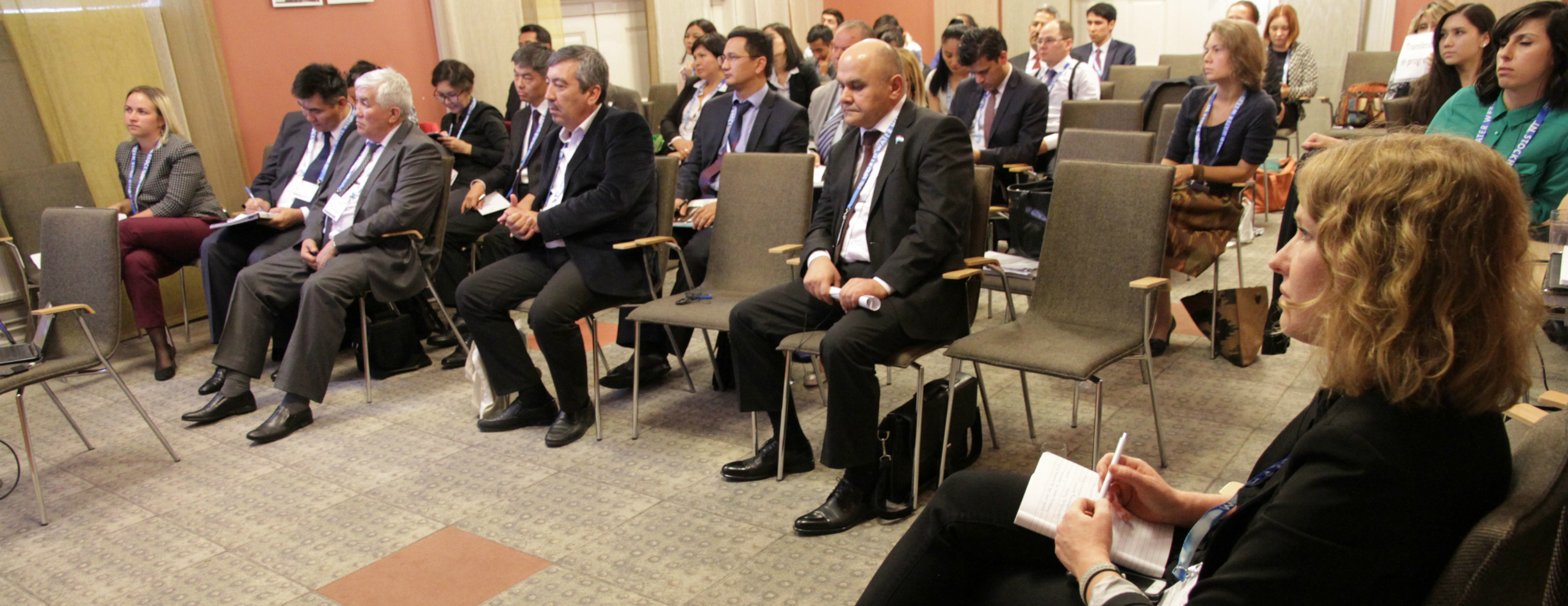News on the World Water Week - seminar on water diplomacy
August 30, 2017, Stockholm, Sweden. Within the framework of the World Water Week, a meeting of European development partners was held with a delegation from Central Asia and Afghanistan, and a seminar on water diplomacy with the participation of the Stockholm International Water Institute (SIWI).

During the meeting, representatives of the countries stated about national actions in the field of environmental protection and water resources management. All countries noted the importance of mutually beneficial regional cooperation. In turn, the European parties noted that interest in Central Asia continues to grow – as a region with relevant experience for learning, which is consonant with international efforts to combat the world water crisis.
After the meeting, the participants considered multi-level and inclusive management of transboundary waters, examples of the Mekong basin, as well as the countries of the Middle East and North Africa, and experience in enhancing water diplomacy capacity.
In particular, in the Mekong river basin, various types and instruments of cross-border cooperation are practiced. Vietnam, Cambodia, Laos and Thailand, with the support of the United Nations, have been cooperating in the Mekong River Commission since the middle of the last century, which continued at the level of technical exchanges even during the Vietnam War.
As a result, the four countries signed the Agreement on Cooperation for the Sustainable Development of the Mekong River Basin. China and Myanmar, the countries of the upper stream, are not part of this initiative and are making their contributions to cross-border cooperation through bilateral agreements.
Speaking about Central Asia, Dr. Abdullaev made a presentation on a joint study conducted by CAREC and adelphi within the framework of the Blue Peace Central Asia initiative. The study demonstrates the price of inaction and benefits of cooperation in the field of water management between the countries of the region.
The costs of insufficient cooperation are already significant today and risk rising further in the future. Due to deteriorating infrastructure, environmental degradation and demographic and economic pressures, these costs will inevitably increase if water management remains as it currently is.
In seeking to strengthen water cooperation in the service of all countries, Central Asia can build on three important assets and developments. First, the region is home to numerous existing cooperation frameworks at different levels whose functioning can be enhanced. Second, the new ‘redundant’ infrastructure has reduced dependencies and has thereby removed or mitigated potential ‘flashpoints’ of political conflict. Third, the intensified political dialogue between neighbors during the past year creates new potential for reinforced cooperation.
Key messages of the day:
· The Middle East, the countries of the Mekong River Basin - today there are practically no regions in the world where water diplomacy would not play an important role, including for ensuring security.
· In Central Asia, risks due to ineffective water cooperation are significant, and the quality of water cooperation will have a huge impact on the future of the region.
· At the moment, countries are more effective in investing in capacity building and education of those people who are developing legislative support for all reforms in the water sector. When the staff speak the same language, have knowledge of possible methodologies and cooperation tools, it will be much easier for them to improve the legal framework for improving and enhancing transboundary water cooperation.
